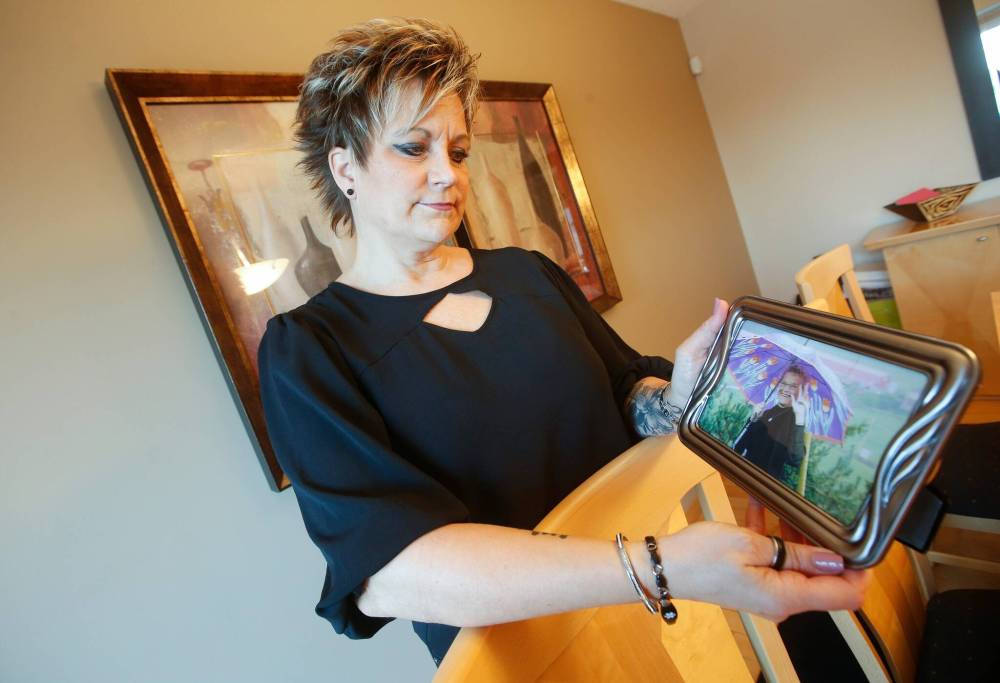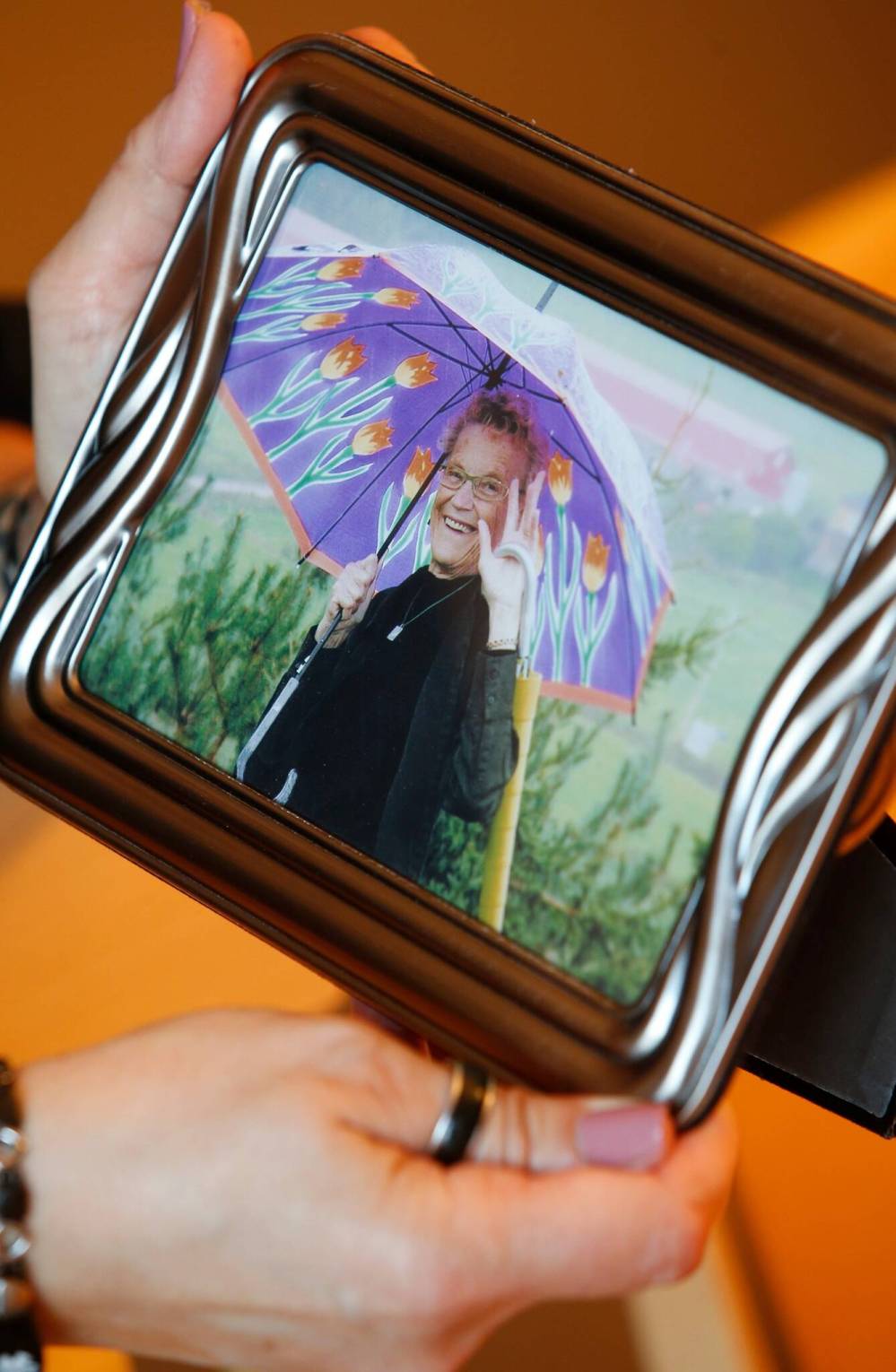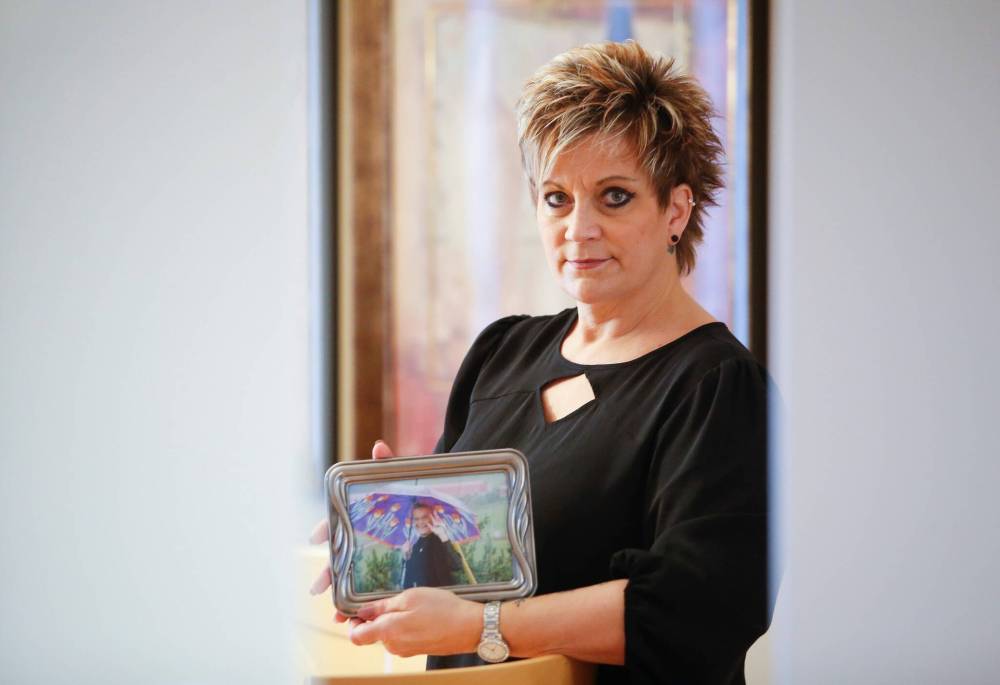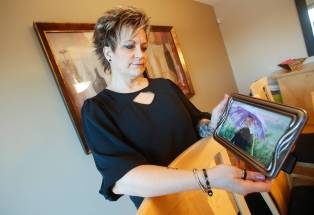Transfers hastened mother’s death, family says Frail senior moved from one hospital to another and back 'was in horrible shape when she came back’
Read this article for free:
or
Already have an account? Log in here »
To continue reading, please subscribe:
Monthly Digital Subscription
$0 for the first 4 weeks*
- Enjoy unlimited reading on winnipegfreepress.com
- Read the E-Edition, our digital replica newspaper
- Access News Break, our award-winning app
- Play interactive puzzles
*No charge for 4 weeks then price increases to the regular rate of $19.00 plus GST every four weeks. Offer available to new and qualified returning subscribers only. Cancel any time.
Monthly Digital Subscription
$4.75/week*
- Enjoy unlimited reading on winnipegfreepress.com
- Read the E-Edition, our digital replica newspaper
- Access News Break, our award-winning app
- Play interactive puzzles
*Billed as $19 plus GST every four weeks. Cancel any time.
To continue reading, please subscribe:
Add Free Press access to your Brandon Sun subscription for only an additional
$1 for the first 4 weeks*
*Your next subscription payment will increase by $1.00 and you will be charged $16.99 plus GST for four weeks. After four weeks, your payment will increase to $23.99 plus GST every four weeks.
Read unlimited articles for free today:
or
Already have an account? Log in here »
The family of a senior with dementia who died after being transferred between two Manitoba hospitals is calling on the province to end patient transfers, especially for the elderly.
Of the 331 hospital patients sent far from home since last October under Manitoba’s inter-regional patient-transfer protocol, it’s unknown how many are elderly, how many have dementia or how many died soon after being transferred.
Shared Health is not disclosing any of that information publicly, and there is no demographic data to show which groups of Manitobans are hit hardest by the transfer policy.

Joyce Rivard, 84, fell and dislocated her hip on Feb. 1 and died at Concordia Hospital on Feb. 25. Before she died, and despite her dementia and frail state, Rivard was transferred to a health centre in Treherne, 126 kilometres away, to free up a bed in Winnipeg. Within 24 hours after the ambulance ride, she dislocated her hip again and was sent back to Concordia.
Now, her family wants answers, and they don’t want other families to keep suffering the same grief. They’ve contacted the premier, the health minister, and hospital managers about Joyce’s care.
“I know this isn’t going to bring my mom back, obviously, but I just don’t want this to happen to any other person who doesn’t have a strong advocate,” said Joyce’s daughter Gina Tavares. Tavares has been a nurse for 32 years and works with people who have dementia. Suddenly being in a different environment, away from familiar faces, can make them more agitated and cause other problems, she said.
“Especially if they have dementia, it’s going to increase their confusion, for sure, if they’re being transferred out to different places.”
Tavares and her sister, Jacquie Rivard, say they believe the back-and-forth transfers contributed to their mother’s death.
“That certainly led to her early demise, as far as we’re concerned, because she was in horrible shape when she came back (to Winnipeg),” Rivard said.
In a statement emailed to the Free Press late Tuesday, a Shared Health spokesperson said the transfer policy “remains a necessary pathway to ensuring capacity” at acute-care hospitals.

“Prior to any transfer, care teams carefully review a patient’s specific needs to determine if a transfer to another site is medically safe for the patient, who must be in stable condition, and whether the receiving site can meet both their immediate and ongoing care needs.”
Rivard typically had a smaller appetite, but when her daughters saw her after she returned to Concordia, she was hardly eating or responding at all. There was no video-chat technology available in Treherne, and because of COVID-19 visitation rules, her family couldn’t see Joyce in person for a few weeks. They got permission to see her at Concordia during the week leading up to her death.
Joyce had always been an optimistic, happy-go-lucky person, even after she was diagnosed with dementia, her daughters said, but she deteriorated after the transfers. She’d been on the mend after an initial hip surgery at Concordia in early February, and spent about a week recovering there before the hospital’s bed-utilization staff informed her family she would be transferred 352 kilometres away to Russell. Her daughters objected to that transfer, and Joyce was ultimately sent to the somewhat closer health centre in Treherne.
“I truly believe if my mom hadn’t been shipped out, she probably would still be with us,” Tavares said.
Rivard’s email to the premier’s office (“What happened to my Mom was totally inhumane,” she wrote. “Just because we have a broken system does not mean that we can do this to people.”) led to a phone call with a representative from Shared Health, who expressed sympathy but told her the transfers continue. Rivard said she’d hoped to hear the province’s plan to “address the mess we’re in.”
“How are they going to get us out of this?” Rivard said. “I think that’s a question that the public needs to ask.”
The family wanted an internal investigation, but they didn’t file a formal complaint with health authorities. Joyce’s death has not been officially linked to the transfers.

Hospital patients in Manitoba were sometimes sent for treatment in other areas of the province before the pandemic began, but after facing backlash for sending ICU patients out of province last spring, Manitoba’s health system responded to COVID-19 demands by relying on an inter-regional patient-transfer protocol. It meant patients who didn’t need active medical treatment but still needed to recover in a hospital bed would be sent to rural hospitals that had space. The province ramped up the transfers last fall, and Shared Health has said they’re expected to continue.
“It’s so sad to think that this is still continuing to go on and it probably will still continue to go on,” Tavares said. “It seems like these people in these high-power positions are making all these decisions, but it’s not their loved one that’s being transferred out.”
katie.may@winnipegfreepress.com

Katie May is a general-assignment reporter for the Free Press.
Our newsroom depends on a growing audience of readers to power our journalism. If you are not a paid reader, please consider becoming a subscriber.
Our newsroom depends on its audience of readers to power our journalism. Thank you for your support.
History
Updated on Tuesday, April 5, 2022 9:32 PM CDT: Adds missing word to lead graf.









